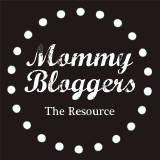 When is my child old enough to learn to read? When should I start teaching reading? These are questions that a lot of parents ask, not just homeschoolers. There are a lot of experts who have developed several well published theories for these questions.
When is my child old enough to learn to read? When should I start teaching reading? These are questions that a lot of parents ask, not just homeschoolers. There are a lot of experts who have developed several well published theories for these questions.The real answer is your child is ready to learn to read when you are ready to invest the time and effort into teaching them. Your personal educational philosophy will largely influence your readiness checklist.
The early bird philosophy that I know the most about was developed by Glen Doman the founder of The Institute for Human Achievement and Potential. Doman champions teaching reading to children as young as five months of age.
The better late then early philosophy proposed by Dr. Raymond Moore is well known in most homeschool circles. Dr. Moore argues that a child develops the skills needed to learn to read over time and trying to force a child to learn to read too early will be counterproductive. A child, especially boys, who are not reading at the age of ten, eleven or twelve, will grow into this ability Dr. More argues.
So who is right? They both are! Children have successfully learned to read and love it regardless of which theory their parents subscribed to. The choice is yours.
Doman compares learning to read with learning to speak. If we only whispered to our babies or even refused to speak in front of them they would never learn to talk. But by speaking regularly, singing, questioning, and engaging our infants they learn to speak. By the age of three most children have functionally learned a whole language. Reading is just learning a language with your eyes rather then with your ears. Infants of deaf parents will learn sign language as easily as infants of hearing parents learn speech.
So why don't all children learn to read? The problem is their eye development. Most children do not achieve 20/20 vision before five years of age. Most print is written too small for children to see, it is like whispers in the background. There but unimportant. Doman had parents make cards with words large enough for the infants to actually see.
Meg was five months old when I heard about Doman's philosophies. It went against every thing that I had learned in my college education classes. When I discussed his philosophies with my mother, she surprised me by pulling his book off of her shelf. I devoured it. Then I tried it. I was sure that it would not work, but I figured it couldn't hurt. To my surprise is did work. Meg was reading level 2-3 beginner books independently before her second birthday. She read The Wizard of Oz before she was five. She went to kindergarten, her teacher told me to homeschool her.
Doman forced me to reevaluate the predominate educational philoshies that I was exposed to. Homeschooling has allowed me to be exposed to many more. The more I have learned the more I see that there is value in most educational philosophies. Parents must choose what is right for their family and their children. The supporters of these different ideologies often seem almost religious in their zeal that their way is the right way. It makes me wonder if like religion, the state is better staying out of education.
In his book Better Late then Early Dr. Raymond Moore sites several scientific studies that show that young children are developmentally not ready for formal schooling. He argues that children are best kept in a home environment. "Wait 'til Eight" has become a slogan in many homeschool circles.
With the number of children being diagnosed with learning disabilities at earlier and earlier ages, many site More's book as an explanation for why these youngsters are getting labeled.
While I was not introduced to Dr. Moore's book until after all of my children were reading I feel a personal sense of gratitude for his homeschool work in general. Dr. Moore was very influential in Washington State when our homeschool law was passed. He came and testified on behalf of the homeschooling community. For that, and the rights I have to homeschool, I will always be thankful.







No comments:
Post a Comment